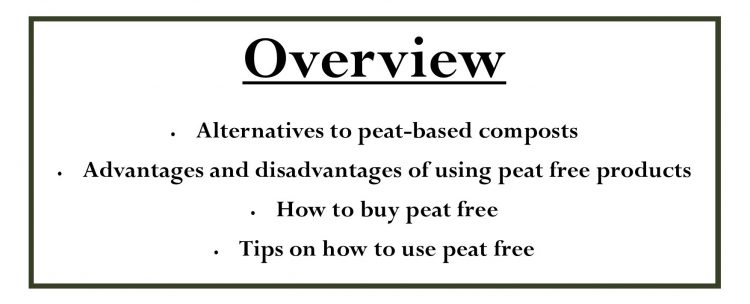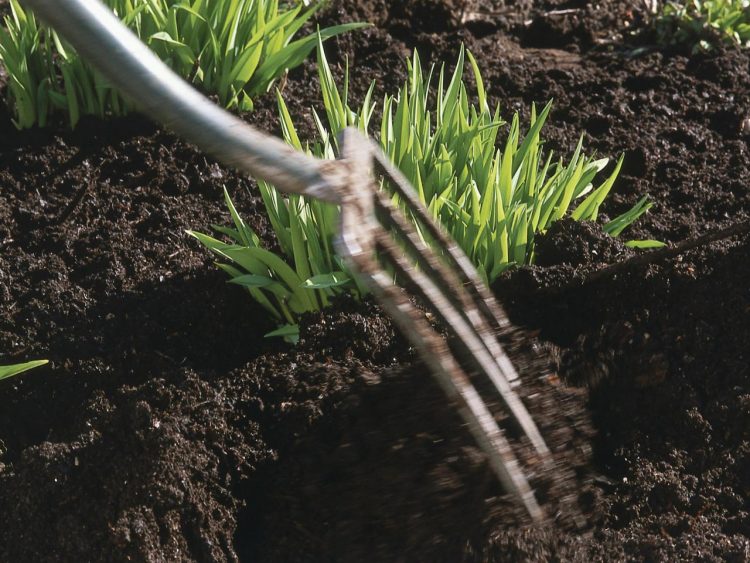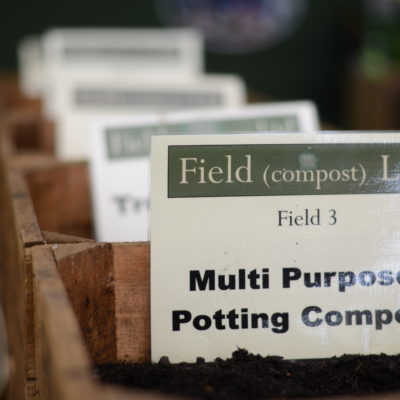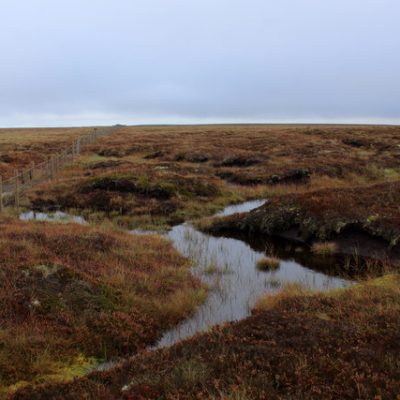
The sale of peat for amateur gardening is set to be banned by 2024. Click here for information on peat and why it is being banned.
So, is the ban going to effect how you garden, the quality of your soil, or plant growth? It doesn’t have to!

Alternatives to peat-based growing media:
In recent years the alternatives to peat-based composts have become readily available and aim to emulate the properties of peat and support healthy plants. Research has vastly improved the quality of peat free alternatives, with the Director of science at the RHS, Professor Alistair Griffiths noting that many alternatives to peat compost can now, in some cases, provide better results than peat (BBC, 2022). So, if you have had problems with peat free in the past, it is worth trying again.
Click here for the results from the RHS’ peat vs peat free trial.
Peat free alternatives can be made from a blend of:
Organic (plant-based) ingredients:
- Composted bark
- Coir (made from coconut husk)
- Wood fibre
- Green compost
Inorganic materials:
- Grit
- Sharp sand
- Rock wool
- Perlite
Field Compost Ltd uses coir, grit, and grow bark as alternatives to peat.
Peat free compost can also be made at home using garden compost, leaf mould and inorganic materials like loam and sand. But the results of making your own can be variable, with difficulties in standardising the PH, moisture retention and available nutrients, and ensuring the final mix is weed free.
Advantages of peat free:
- There is now a variety of good and renewable ingredients used in peat free growing media, e.g., coir is a waste product, unlike peat.
- Most peat free composts contain healthy microorganisms that provide a natural source of plant nutrition, along with other benefits like weed suppression.
- The materials in peat free composts can match the properties of peat:
- Mixing coarse and fine particles creates a balanced compost that will hold enough water and air, which is essential for root growth. This is comparable to peat’s aeration and moisture holding capabilities.
- Peat free alternatives like Coir and sheep’s wool waste offer the same moisture retention as peat.
- Wood-based mixes, e.g., composted bark, sawdust and paper waste, have excellent draining properties and low PH levels.
Disadvantages of peat free:
-
- There is huge variation in the quality and consistency between products available in UK garden centres.
- Some ingredients contain physical contaminants (e.g., plastic, metal, and glass) if not made with the correct organic materials.
- Certain materials, like wood fibre, are considered cheap ‘bulking agents’, that have an adverse effect on the release of plant nutrition.
- Some peat free composts may contain weed seeds and plant pathogens.
- Peat free products may need to be used differently to traditional peat-based products.
Despite these disadvantages, that vary between peat free brands and manufacturing techniques, the RHS has stopped selling peat-based products since 2019, and 98% of their gardens are peat free (RHS, 2021). Furthermore, the National Trust states it is committed to going peat free; all the plants they grow, buy and sell are potted in peat free compost, and never use peat for mulching or soil development.
Transitioning to peat free gardening:
When trying to go peat free and when choosing your composts, keep in mind that packaging or brands that do not explicitly state that they are peat free are likely to contain peat, e.g., “peat reduced”. Ones that state that they are “environmentally friendly” or “organic” composts are not necessarily peat free.
Additionally, try to buy plants that have been grown in peat free compost. May need to ask nursery or garden centre about this.
Buy and plant larger plants, like shrubs, trees, and perennials ‘bareroot’ in winter. This helps to cut down on plastic pots and peat-based compost.
Tips on how to use peat free growing media:
- Do your own research. There are plenty of brands to choose from at a variety of price points. Start off by buying a few different products and carry out back-to-back trials with the plants/applications you will be using the compost for. Field Compost is always interested to hear how trials have gone, and feedback/photos will be gratefully received.
- Read the instructions, and if needs be contact the manufacturer with any questions you may have. We provide directions for use on each products’ webpages and their product specification sheets.
- Don’t over water. Many peat free compost mixes can have the appearance of being dry in the pot. The surface may have formed a dry crust, and the edges may have shrunk back from the pot. Before watering check the moisture by sticking a finger a couple of inches below the surface. If you want to be really scientific, a moisture meter can also be a useful tool.
- Don’t over fertilise. Most peat free compost will contain the requisite plant nutrition for the first few weeks of use. Adding liquid or granular feed too early can be counterproductive to plant health and nutrient uptake. This can be a particular issue for young plants when growing from seed. Most peat free compost will continue to naturally release nutrients for a long time after any inorganic fertiliser has been used up.
- Adjust particle size if you need to. Some of the peat alternatives can be quite coarse and as such makes certain applications such as growing from seed challenging. If this is the case, you may need to use a sieve to adjust the particle size. Alternatively contact the manufacturer to see if they supply a more suitable product. Field Compost supply a specifically designed seed compost that has been graded to <4mm and has had the fertiliser content adjusted for seedlings and young plants.
- Provide feedback to the manufacturers. Although lots of development work has gone into peat free growing media over the past twenty years, there’s still lots more to do. Field Compost love to hear back from customers and all feedback is received positively.

